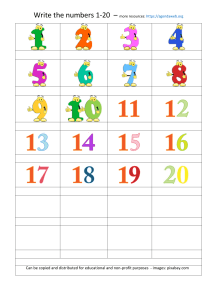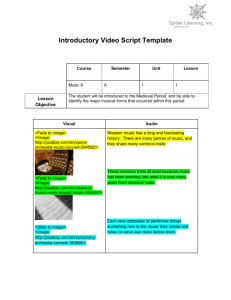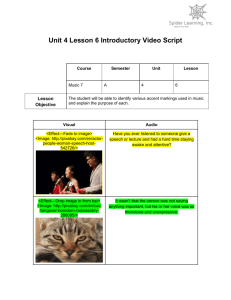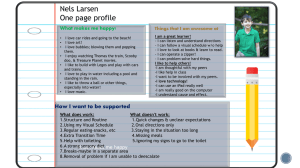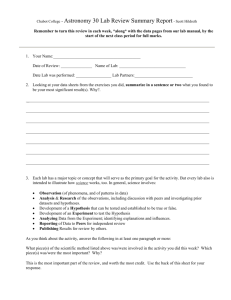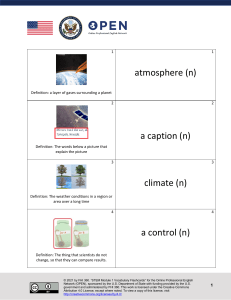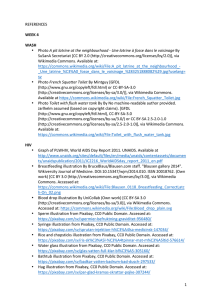Equipping Faculty for Mid-level Administrative Positions
advertisement
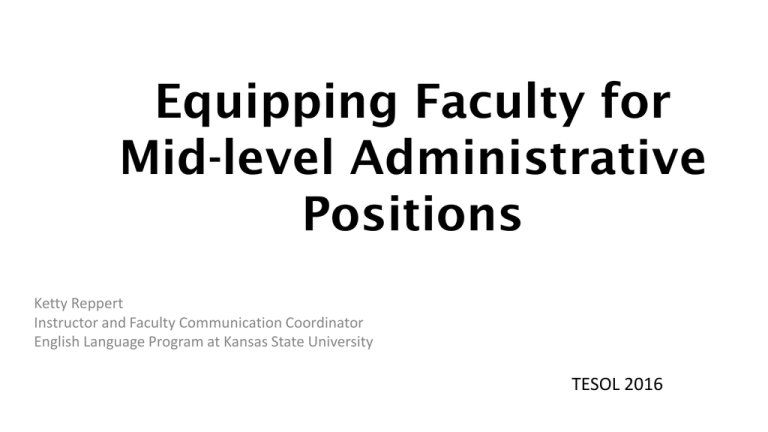
Equipping Faculty for Mid-level Administrative Positions Ketty Reppert Instructor and Faculty Communication Coordinator English Language Program at Kansas State University TESOL 2016 Recreation of MC Escher's 'Drawing Hands‘ by Nicole Hébert (CC BY-NC-ND 3.0) http://femmefatale06.deviantart.com/art/Escher-s-Drawing-Hands-174199702 pixabay.com (CC0 Public Domain) pixabay.com (CC0 Public Domain) pixabay.com (CC0 Public Domain) Help Faculty Make Informed Decisions • Position descriptions • List of necessary skills/knowledge • Expectations (evaluations, term of service, etc.) • People to talk to • Allow for a hand-off period In-House Training • • • • Orientation (for culture shock, see Porter et al.) Handbook Program library Working closely with supervisor and colleagues – Observing/mentoring – Team meetings – Facilitate sharing among peers • Institutional resources – Contact with campus offices – Campus trainings pixabay.com (CC0 Public Domain) Challenges / Skills and Training Needed • Self-management – – – – – – – – keeping up with email, managing data, record keeping managing your schedule staying organized flexibility (especially in conditions of rapid change and uncertainty) balancing teaching and other responsibilities accepting what is beyond your control exercising perseverance in working toward long-term goals tracking and sharing progress/accomplishments over extended periods (unlike in teaching, things don’t re-set every semester; often delayed results/feedback) Challenges / Skills and Training Needed • Interpersonal – being a good communicator – working with and respecting office staff (following appropriate channels) – responding to conflict; not taking things personally – leading effective meetings – working through office and institutional politics – managing competing demands/establishing priorities – establishing and maintaining boundaries (professionalism; friends or colleagues?; coping with some level of isolation; dealing with “mission creep”) – being “squeezed” between administration and peers (feedback, criticism, and demands from both groups; authority/credibility with faculty peers; changed relationship with students) References • Coffey, M., Earles-Law, B., Grace, S., Soppelsa, E.F. (1995, May 29). Setting up an in-house cross-cultural counseling office in an intensive English program. Workshop presented at NAFSA National Conference. New Orleans, LA. • Porter, A. M., Bus, D., Ravitch, L., & Johnson, B. R. (2013, March). Beyond Institutional Culture Shock. IEPIS Newsletter. Retrieved from http://newsmanager.commpartners.com/tesoliepis/issues/2013-03-04/3.html Handout with list of resources available at: http://www.k-state.edu/elp/professional_presentations/

